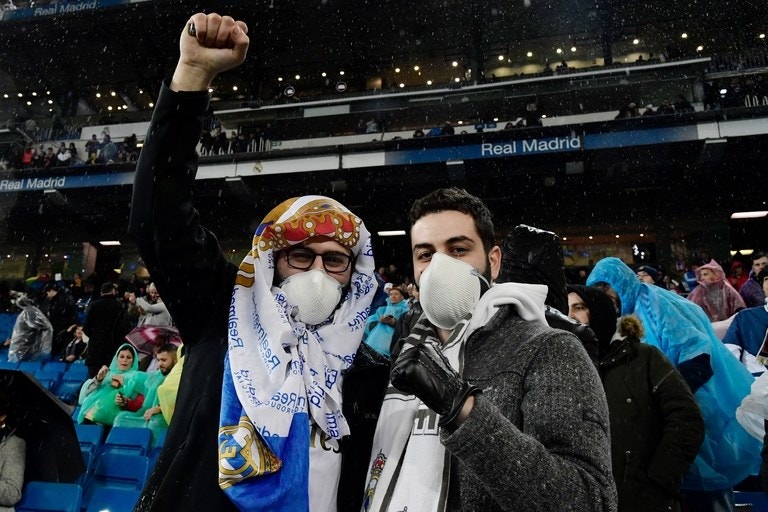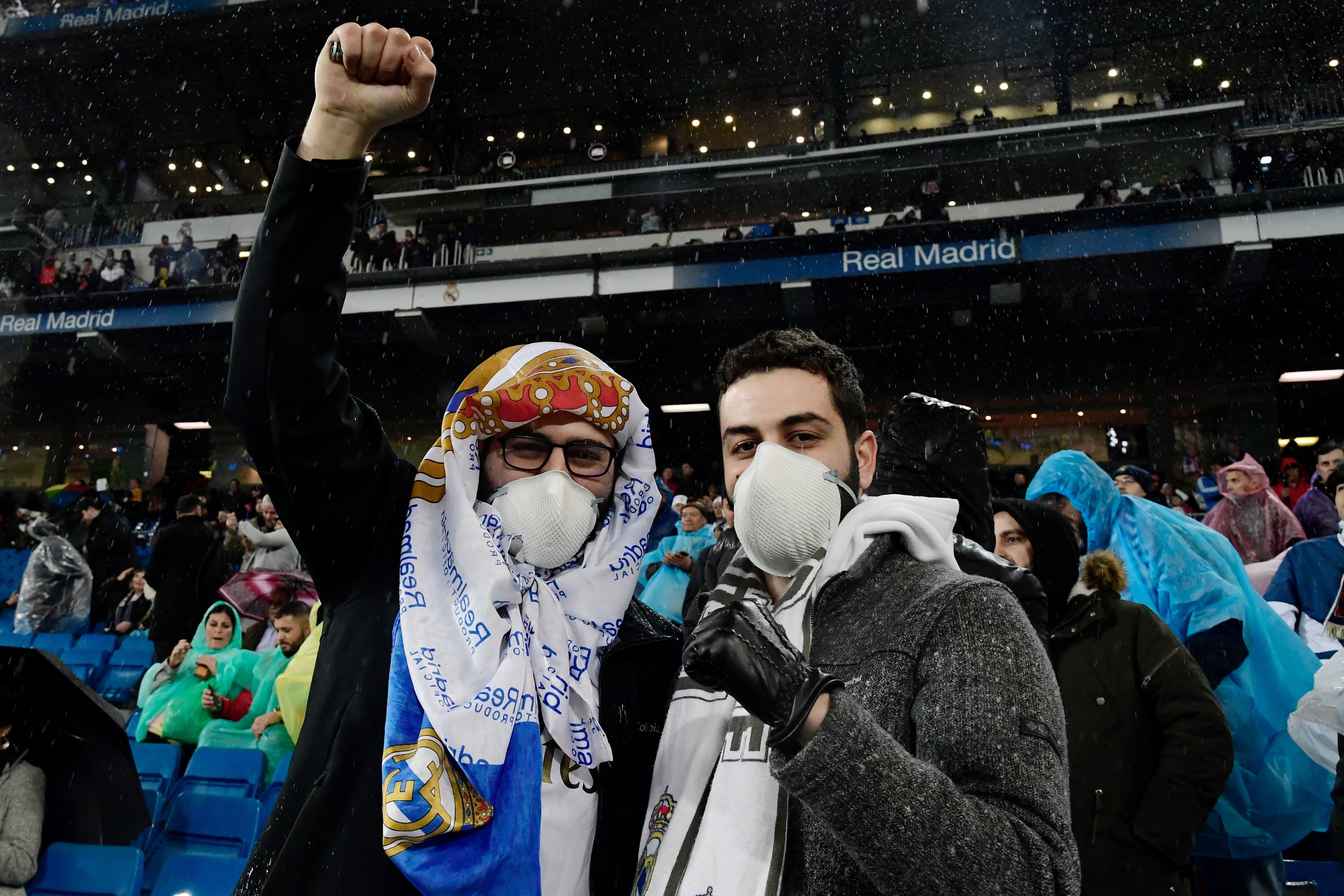
Necessary disclaimer: If the premise of this piece is correct, and the outbreak of the coronavirus leads to major changes in American and international sports in 2020, I recognize that it will be the absolute least of our concerns. Saturday, the first American death from Covid-19 was confirmed, and that follows almost 3,000 deaths worldwide. The human cost is paramount, and losing a few sporting events pales in comparison. The Loop is a sports blog, so I'll be looking at the effect the outbreak will have on sports, but that analysis isn't meant to suggest, implicitly or otherwise, that it's anywhere near the top of the concerns list.
With that locked in, I'll direct your attention to this statement that came out from the National College Players Association on the topic of March Madness:
https://twitter.com/RossDellenger/status/1233814676003266561?s=20
The demands are definitive: No press events, no meet-and-greets, and a serious look at playing in empty gyms. If that sounds drastic, consider what happened in Italy on Saturday, where five Serie A (the top domestic league) soccer matches, which were already scheduled to be played in an empty stadium, were outright canceled:
This all makes sense—sporting events are a prime venue for public congregation, along with concerts, church, and etc. When a deadly outbreak is ongoing, it follows that getting thousands of people together in an enclosed space is a bad idea. The fact that cancelations are happening already in a country that has seen 400 cases of coronavirus (as of last week) is a good indication of what's coming down the pipeline here.
In January, I wrote that the Australian Open should be canceled due to concerns from smoke drifting into Melbourne as a result of the wildfires ravaging the continent, and while ultimately the organizers got lucky with a change in the weather, the reason it wasn't canceled had more to do with money than true caution. There's a ton of investment wrapped up in huge events like that, and money will inevitably be lost if the events aren't staged…all of which provides an obvious incentive to proceed at all costs.
We can expect to see that incentive rear its head again as the coronavirus spreads throughout the U.S. and the world, but at a certain point the pressure might become too great to ignore. Consider this year's Sumer Olympics in Tokyo, which are just five months away. Japan has had 241 cases reported as of this writing, and while that total doesn't yet include a death, it's only a matter of time. Plus, regardless of host nation, the Olympics are a massive gathering of people from all over the planet, making Tokyo 2020 an ideal incubator for the virus—a place where it can spread rapidly and be carried back to the attendees' home nations, facilitating greater outbreak. Unless the situation has markedly changed by the summer, which does not seem at all likely, the Olympics represent a massive threat.
The same can be said, on a slightly smaller scale, for the Euro 2020 soccer tournament (held this year in multiple cities throughout Europe, which ironically leads to more international travel by more people than if it had been held in a single nation like usual). Or the Tour de France. Or March Madness. Or the NBA playoffs. Or Major League Baseball. Or, specific to our interests, any professional golf tournament.
Right now, sports are at the mercy of this virus, both in terms of how fast it can spread and the availability (and affordability) of a potential vaccine. There are about 70 known cases in the U.S. as I write, an incredibly small amount, and already there's talk of canceling March Madness. Imagine what happens if that total doubles, or triples, or quadruples, or skyrockets into the thousands.
That kind of spread will necessitate drastic measures, and massive athletic gatherings will be among the first sacrifices. The money incentive won't matter in the face of something so deadly—it's one thing to ignore some wildfire smoke, but to ignore a debilitating virus is a step too far. Sports as we know it, at least in the short term, will be radically changed.
Weirdest Fan Experience of the World: European Soccer
Don't get me wrong: I really like that winning the "regular season" is a huge prize in European soccer leagues. That's as it should be, since it rewards consistency over a long period of time, an achievement that is devalued in playoff-centric American sports. But it does create some odd situations.
Take Liverpool, the team I've begun following this season. There are three really big prizes available to the best English clubs, and they are the league title, the F.A. Cup (an England-only competition), and the Champions League (a cup competition featuring the best clubs in Europe). As you might imagine, the schedule can get very busy for teams competing in all three of these competitions, as well as a few minor secondary cups. That's true for Liverpool, and though the club has made the final 16 of the FA Cup, manager Jurgen Klopp long ago decided that they'd only take it half-seriously. When they play Chelsea this coming Tuesday, their lineup will be diminished, and Chelsea is favored to win.
In the Champions League, a bigger prize, Liverpool is in trouble after losing the first leg of the round of 16 to Atletico Madrid, 1-0. They'll be home for the second and final leg next week, but it's still a scary deficit.
Meanwhile, the picture in the English league, which Liverpool hasn't won in decades, is one of total domination. They lost for the first time all season on Saturday, but their strength, and the relative weakness of the other top teams, has ensured they'll be victorious. They could (and probably will) clinch by the end of March.
Which creates a bizarre situation: By March 11, this team might be out of both the F.A. Cup and the Champions League. A week or two later, they could clinch the league. And then…well, and then there are still two months of matches to be played.
What do you possibly do with those two months, when all the drama of the season is over? Is it one long celebration? Do you just forfeit and go home? (Note: I'm going to guess "no" on that one.) Do the fans just enjoy the matches as one-offs? I put the question to Twitter, and the answers went from "it will be weird" to "screw it, celebrate!" Which is totally fair. But I'm getting old, and I can't even have small amounts of alcohol two nights in a row without moaning in a corner for the next week. A two-month celebration is simply out of the question.
This will be the most American thing I ever say, but…I kinda wish there were playoffs.
(gets struck by European lightning)

